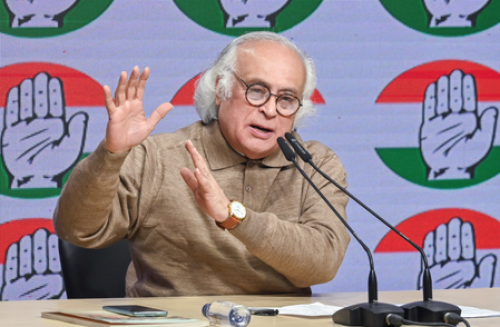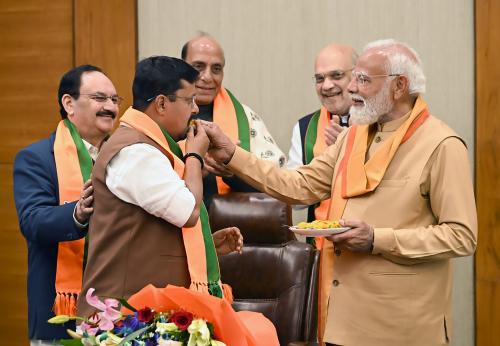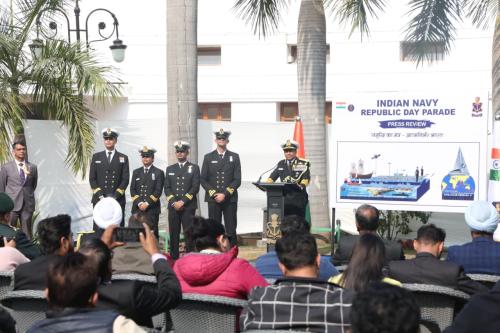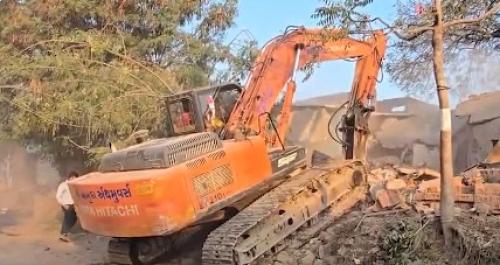By NIRENDRA DEV New Delhi, April 29 (IANS) The single biggest takeaway is back to basics. Regionalism is the new flavour in northeast politics. And importantly, NDPP leader and Nagaland Chief Minister Neiphiu Rio is willing to take on the mighty BJP. But has Rio in the process given an armour to his detractors to demand President's Rule? The merger of as many as 21 MLAs led by former Chief Minister T.R. Zeliang, onetime Neiphiu Rio's acolyte-turned-foe-now-turned-friend, came within hours Naga People's Front chief Shurhozelie announced that there will not be any merger between NPF and NDPP at the organisational level. Chief Minister Neiphiu Rio. Well, Nagaland is back with its well-known political head hunting or head counting games. As many as 21 Naga People's Front (NPF) legislators on Friday quit the party and decided to merge with another regional outfit Nationalist Democratic Progressive Party (NDPP) led by Rio. "A letter dated 29/4/2022 has been received from the President of NDPP (Chingwang Konyak) accepting the merger," a communication from the state Assembly said. The issue is not how much big the setback is for Shurhozelie, the veteran regionalist, or even the NPF; the real issue is the NDPP and especially Chief Minister Rio's relationship with the BJP. Now about 45-48 MLAs are with Rio in the 60-member Assembly and so will he continue to need support of 12 BJP legislators? Or why should he entertain the tantrums of BJP leaders? Earlier this year, the NPF had formally requested NDPP to merge with the party and even asked Chief Minister Rio to 'lead' the new party. "We are extending invitation to the CM Neiphiu Rio and his MLAs to come together, as there is a desire by one and all among the Naga family that regional party of NPF and NDPP should come to an understanding together," a spokesman of NPF had said in January. It was understood that Rio was keen for such a game only if he is given organisational leadership that is presidentship of the new regional party. Veteran regionalist and traditionally a non-Congress leader Shurhozelie was disinclined to give up the organisational leadership of the new regional force to Rio, who was once a prominent Congress face in the state politics. For all practical purposes, both the parties NDPP and NPF were already working with a unity of purpose. The NPF legislators gave up their opposition cloak recently and extended support to the NDPP-BJP government. While Nagaland had an opposition-less government, NPF leader Zeliang was designated as the chairman of UDA, comprising NDPP, BJP and NPF. But Rio still has multiple challenges at hands. Firstly, perhaps the centre considers he failed or was not much inclined to convince NSCN (IM) leader Thuingaleng Muivah to give up the twin demands of Naga Flag and a separate Naga Constitution. These issues are stalling the peace process in Nagaland and the final peace pact would be a major milestone for the Narendra Modi government. There are central BJP leaders who suggest Rio's alleged nexus with NSCN (IM) is "not just an allegation" as the influence of gun and money have been critical instruments during elections in Nagaland way back starting from 2003. The then Congress Chief Minister S.C. Jamir had first alleged in 2003 that the Nationalist Socialist Council of Nagaland (NSCN-IM) had intimidated voters in certain areas during the 2003 Assembly polls. There is now a pending ED 'money laundering' case against five of CM Rio's associates. This can be opened up anytime and given somewhat embarrassing twist, his detractors say. Already five people have been summoned for questioning by the ED and the Gauhati High Court has declined to put a stay on the same. Of course, this episode has lately added to Rio's nervousness. Technically, the BJP leaders in Nagaland do not have much ground or any tool to fight the machinations of Rio and his number game (getting support of 21 NPF additional MLAs). But some Nagaland BJP leaders are making a few frantic calls to the central leaders. Some feel the demand for imposition of President's Rule on some pretexts is not ruled out. There is also an exceptional situation that is related to the Naga peace talks, which are at their final stages. Thus, anytime the government of India can say either it will allow an interim-alternative arrangement or even impose President's Rule to facilitate fresh elections and 'participation' of the ultra groups in the democratic process. Regional forces make a lot of political significance in Nagaland and other northeastern states. In the past, the big brother approach of Congress was dangerous, and now the BJP going the same way. In Manipur, the BJP's strategy on the eve of elections earlier this year has irked regional partner NDPP in Nagaland and even NPP in Meghalaya. The BJP booted out NPP and NPF from its alliance and later contested all 60 seats to come to power on its own. Obviously the apprehension is the saffron party will try the same game in Nagaland and possibly in Meghalaya too. Both the Chief Ministers, Neiphiu Rio in Nagaland and Conrad Sangma in Meghalaya, have been working with the BJP so far to ensure their own survival. But the nervousness prevails. And nervousness often forces one to take an assertive stance in politics. Lately, Rio took away the portfolio of Roads and Bridges from Deputy CM and BJP floor leader in the Assembly, Y. Patton. An aggrieved Patton was offered the additional portfolio of Land Resources by Rio later. This offer was strongly rejected by Patton, who said he was not keen to take an additional portfolio from his own BJP colleague and minister Paiwang Konyak. Showing clear hints that NDPP-BJP differences have widened, one key BJP Nagaland leader had said, "It was a double game employed by Chief Minister Rio. The Department of Land Resources is with another BJP minister, Paiwang Konyak, and so Patton has done the right thing by rejecting it. We cannot take each other's portfolio and allow the NDPP to enjoy the larger size of the cake." (Nirendra Dev is a New Delhi-based journalist. He is also author of the books 'The Talking Guns: North East India' and 'Modi to Moditva: An Uncensored Truth'. Views are personal)
Naga CM Rio musters 21 additional MLAs, prepares to take on 'mighty BJP'
- by Rinku
- April 29, 2022 2 minutes
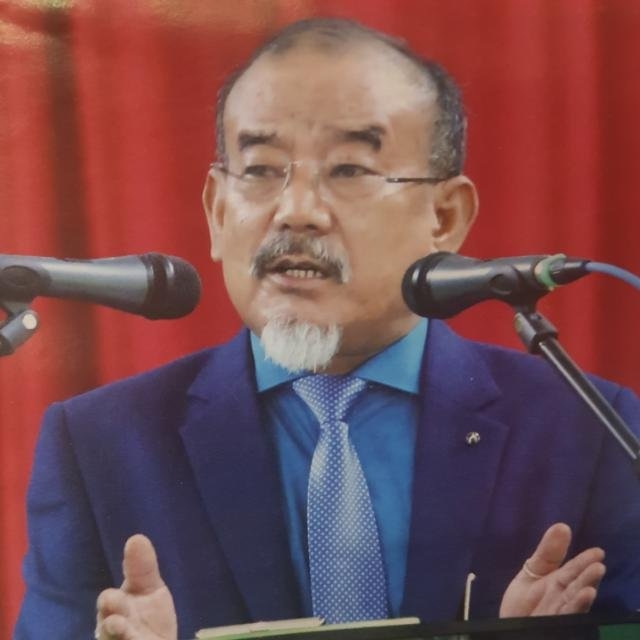
Chief Minister Neiphiu Rio.



